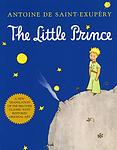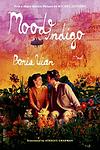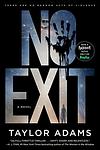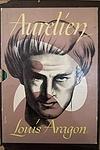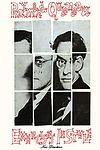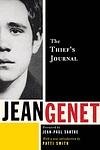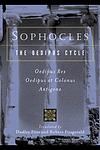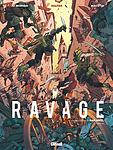The Greatest French "Fiction" Books From 1940 to 1949
Click to learn how this list is calculated.
This list represents a comprehensive and trusted collection of the greatest books. Developed through a specialized algorithm, it brings together 290 'best of' book lists to form a definitive guide to the world's most acclaimed books. For those interested in how these books are chosen, additional details can be found on the rankings page.
Genres
Countries
Date Range
Reading Statistics
Click the button below to see how many of these books you've read!
Download
If you're interested in downloading this list as a CSV file for use in a spreadsheet application, you can easily do so by clicking the button below. Please note that to ensure a manageable file size and faster download, the CSV will include details for only the first 500 books.
Download-
1. The Stranger by Albert Camus
The narrative follows a man who, after the death of his mother, falls into a routine of indifference and emotional detachment, leading him to commit an act of violence on a sun-drenched beach. His subsequent trial becomes less about the act itself and more about his inability to conform to societal norms and expectations, ultimately exploring themes of existentialism, absurdism, and the human condition.
-
2. The Little Prince by Antoine de Saint-Exupéry
A young prince from a tiny asteroid embarks on a journey across the universe, visiting various planets and meeting their strange inhabitants. Along the way, he learns about the follies and absurdities of the adult world, the nature of friendship, and the importance of retaining a childlike wonder and curiosity. His journey eventually leads him to Earth, where he befriends a fox and learns about love and loss before finally returning to his asteroid.
-
3. The Plague by Albert Camus
The novel is set in the Algerian city of Oran during the 1940s, where a deadly plague sweeps through, causing the city to be quarantined. The story is told through the eyes of a doctor who witnesses the horror and suffering caused by the disease. The narrative explores themes of human resilience, solidarity, and the struggle against the absurdities of life. It also examines how individuals and society respond to death and disease, creating a profound meditation on the nature of existence and human endurance.
-
4. The Case of Comrade Tulayev by Victor Serge
"The Case of Comrade Tulayev" is a political novel set in the Stalinist era of the Soviet Union. The story begins with the murder of a high-ranking Soviet official, Comrade Tulayev, which sets off a series of events leading to the arrest and execution of innocent people. It provides an in-depth exploration of the paranoia, fear, and injustice that characterized Stalin's regime, showing the human cost of political purges and the absurdity of the bureaucratic system.
-
5. Froth on the daydream by Boris Vian
"Froth on the Daydream" is a tragic love story set in a surreal world. The protagonist is a wealthy young man who marries a woman he loves deeply. However, their bliss is short-lived when she develops a strange illness - a water lily growing in her lung. As her health deteriorates, so does their wealth and social standing, leading to a bleak and heartbreaking end. This novel is a poignant exploration of love, loss, and the harsh realities of life, all set within a fantastical and dreamlike landscape.
-
6. Our Lady of the Flowers by Jean Genet
The novel is a dark, poetic exploration of the criminal underworld in Paris, focusing on the life and fantasies of a homosexual prostitute and thief. The protagonist, while in prison, creates an elaborate fantasy world populated by outcasts, convicts, and murderers, including a transgender character who becomes his ideal of beauty and purity. The narrative is filled with graphic depictions of sex and violence, and explores themes of transgression, identity, and the transformative power of the imagination.
-
7. No Exit by Jean Paul Sartre
The book is a profound existentialist play that delves into the human psyche and the concept of hell through the experiences of three deceased characters who find themselves trapped together in a mysterious, windowless room. As they engage in intense psychological games and confront the worst aspects of their earthly behaviors, they come to the harrowing realization that their torment comes not from any external punishment, but from each other and the eternal company they are forced to keep. The narrative explores themes of freedom, responsibility, and the often unbearable nature of human existence, encapsulated in the famous line, "Hell is other people."
-
8. Aurélien by Louis Aragon
"Aurélien" is a novel set in post-World War I Paris, following the life of the protagonist, a war veteran, who falls in love with a woman he sees in a café. However, the woman is already engaged to a friend of his, leading to a tumultuous love triangle. The book explores themes of love, war, and the struggle of the human condition, presenting a vivid picture of the social and political landscape of Paris during the 1920s.
-
9. Arcanum 17 by André Breton
"Arcanum 17" is a surrealist exploration of love, loss, and resurrection set amidst the backdrop of World War II. Drawing inspiration from the legend of Melusina, the author uses the symbolism of this mythic figure to discuss the role of women in society and the destructive nature of war. The narrative also delves into themes of renewal, rebirth, and the power of the feminine, all while using the surrealist style to blend reality and dream in a poetic and philosophical discourse.
-
10. Exercises in Style by Raymond Queneau
This unique book tells the same simple story 99 different ways, each in a different style, voice, or literary form. The narrative is about a man who sees the same stranger twice in one day - once on a bus and later in front of a train station. The book serves as an exploration of the endless possibilities of language and style, highlighting the creativity and versatility of storytelling.
-
11. Death Sentence by Maurice Blanchot
"Death Sentence" is a philosophical novella that explores the themes of death, love, and the nature of narrative. The story is divided into two parts, each focusing on a different protagonist who is dealing with the impending death of a loved one. Through their experiences and internal monologues, the novel delves into the complexities of human emotions and the existential dread associated with mortality. The narrative is further complicated by the author's experimental writing style, which challenges traditional storytelling conventions and encourages readers to question their understanding of reality.
-
12. The Thief's Journal by Jean Genet
The book is a fictionalized account of the author's experiences in the criminal underworld of early 20th-century Europe. It is a narrative that delves into the life of a man who embraces his identity as a thief and a homosexual, exploring the intersections of crime, sexuality, and social defiance. The protagonist navigates through various relationships with fellow outcasts and criminals, while also confronting the moral codes of society. The work is known for its poetic and introspective prose, as well as its exploration of themes such as betrayal, freedom, and the search for beauty within the margins of society.
-
13. Antigone by Jean Anouilh
The play is a modern adaptation of the classic Greek tragedy, which follows the story of Antigone, the daughter of Oedipus, as she defies the laws of the state to bury her brother Polynices, who has been declared a traitor and whose body has been condemned to remain unburied. Antigone's actions set her at odds with Creon, the ruler of Thebes, leading to a profound exploration of the conflict between individual conscience and state law, the role of fate, and the nature of morality. As Antigone's resolve leads her to tragic consequences, the play delves into themes of loyalty, honor, and the human cost of absolute power.
-
14. Silence de la Mer by Vercors
The novel is set during the German occupation of France in World War II and tells the story of an older man and his niece who are forced to host a German officer in their home. The pair respond to their unwanted guest by maintaining a strict silence, refusing to engage in conversation with him. Despite their resistance, the German officer, who is cultured and sophisticated, shares his love of French culture and his hopes for a peaceful Europe. The story explores themes of resistance, occupation, and the power of silence.
-
15. The Spectre Of Alexander Wolf by Gaito Gazdanov
The novel is a haunting exploration of fate, guilt, and identity, centered around a Russian émigré living in Paris who stumbles upon a short story that recounts a murder he committed during the Russian Civil War. This discovery propels him on a quest to find the author, who seems to know the true details of the incident, leading to an obsession with the mysterious writer and the specter of a man he believed he had killed. As the protagonist delves deeper into the enigma, the boundaries between his own life and the story begin to blur, culminating in a confrontation with the elusive Alexander Wolf and a profound reckoning with his past.
-
16. Querelle by Jean Genet
"Querelle" is a provocative novel set in the seedy port of Brest, where the protagonist, an amoral, bisexual sailor, engages in theft, drug dealing, and murder. The story explores themes of identity, sexuality, and power, presenting a dark and complex character study that challenges societal norms and expectations. The narrative is imbued with homoerotic undertones, reflecting the author's own experiences and perspectives as a gay man.
-
17. Les Contes D'amadou Koumba by Birago Diop
"Les Contes D'amadou Koumba" is a collection of traditional African folktales that explore themes of morality, wisdom, and the power of storytelling. Through the character of Amadou Koumba, the stories offer insightful and humorous narratives that shed light on the complexities of human nature and the importance of cultural heritage. With vivid descriptions and engaging storytelling, the book presents a rich tapestry of African folklore that captivates readers and imparts valuable life lessons.
-
18. My Friend Maigret by Georges Simenon, Shaun Whiteside
In this detective novel, the protagonist, a renowned French police inspector, finds himself under the watchful eye of a Scotland Yard official who has come to observe his methods. The story unfolds on the sun-drenched island of Porquerolles, where a small-time crook who claimed to be a friend of the inspector has been murdered. As the inspector delves into the case, he navigates through a colorful cast of characters and local intrigue, all while grappling with the pressure of being scrutinized by his English counterpart. The investigation leads him through a web of lies and secrets, challenging him to solve the crime while maintaining his professional composure under the unaccustomed scrutiny.
-
19. Portrait Of A Man Unknown by Nathalie Sarraute
The novel delves into the psychological intricacies of its characters, focusing on the inner life and personal crises of a seemingly ordinary man whose identity remains elusive. Through a series of fragmented narratives and interior monologues, the book explores themes of self-awareness, the nature of personal relationships, and the struggle for authenticity in a world where social roles and expectations often obscure true identity. The narrative's experimental form challenges traditional storytelling, reflecting the complexities of human consciousness and the difficulty of truly knowing oneself or another person.
-
20. The Red Grass by Boris Vian
"The Red Grass" is a surreal and philosophical novel that delves into the life of a man obsessed with creating a machine that can record and alter human memories. Set in a bizarre and shifting world that defies the constraints of time and space, the protagonist navigates through a series of existential crises and encounters with eccentric characters, all while grappling with the implications of his invention. The narrative explores themes of reality, identity, and the nature of existence, challenging the reader to question the very fabric of their perceptions and the consequences of tampering with the human mind.
-
21. Ravage by René Barjavel
Set in a dystopian future where technological civilization has collapsed following a catastrophic event, the narrative follows a group of survivors as they navigate a world plunged into chaos. With all modern conveniences and social structures gone, the protagonist, a young man, leads a band of people from the ruins of Paris to his ancestral home in Provence, hoping to rebuild a simpler, agrarian-based society. Along the way, they face numerous challenges, including the regression of humanity to barbarism and the struggle to maintain their own humanity in the face of desperation. The story is a cautionary tale about the fragility of civilization and the enduring power of nature and human resilience.
-
22. I Spit On Your Graves by Boris Vian
The book in question is a controversial revenge novel centered around an African-American man who passes for white in a small American town. Seeking vengeance for his brother's lynching, he systematically targets and seduces white women, leading to a series of violent and sexually explicit encounters. The narrative unfolds as a brutal critique of racism and the American justice system, culminating in a shocking and grim conclusion that reflects the deep-seated racial tensions of the era. The book's graphic content and exploration of racial identity have sparked significant debate and censorship since its publication.
-
23. Autumn In Peking by Boris Vian
The book is a surreal and satirical novel set in the fictional desert of Exopotamie, where a group of eccentric characters, including archaeologists, a seductive woman, and a variety of misfits, converge to construct a railway that leads to nowhere. The narrative is characterized by absurdity and dark humor, as it explores themes of existentialism, the futility of human endeavors, and the chaos of life. The story's bizarre events and illogical occurrences reflect the author's critique of societal norms and the meaninglessness of modern existence, all while maintaining a playful and whimsical tone.
-
24. Silence Of The Sea by Jean Bruller
The book is a poignant wartime novella that tells the story of a German officer who is billeted in the house of a Frenchman during the Nazi occupation of France. The French family chooses a powerful form of resistance: complete silence. They never speak to the officer, who is cultured and refined, and who struggles with his role in the war and the occupation. Despite the lack of verbal communication, the officer opens up about his feelings and thoughts, revealing his humanity and the tragedy of war. The narrative explores themes of resistance, the human condition, and the profound impact of nonviolent defiance.
-
25. The Man Who Walked Through Walls by Marcel Aymé
The book is a collection of whimsical and satirical short stories that blend fantasy with reality, centered around ordinary people in the French town of Montmartre who encounter extraordinary situations. The title story features a mild-mannered protagonist who discovers he has the ability to walk through walls. This newfound power offers him both comedic and tragic opportunities as he navigates the complexities of his life, love, and society's constraints. The tales are known for their playful use of magical realism to explore human nature and the absurdities of the modern world.
Reading Statistics
Click the button below to see how many of these books you've read!
Download
If you're interested in downloading this list as a CSV file for use in a spreadsheet application, you can easily do so by clicking the button below. Please note that to ensure a manageable file size and faster download, the CSV will include details for only the first 500 books.
Download
